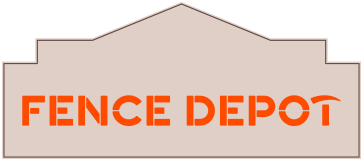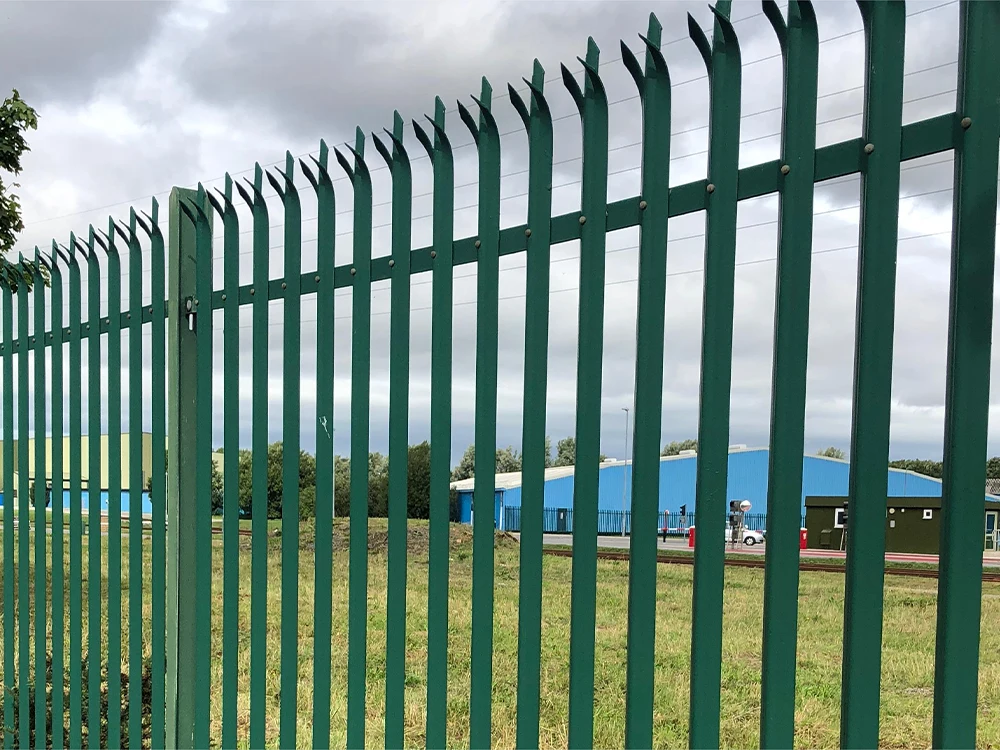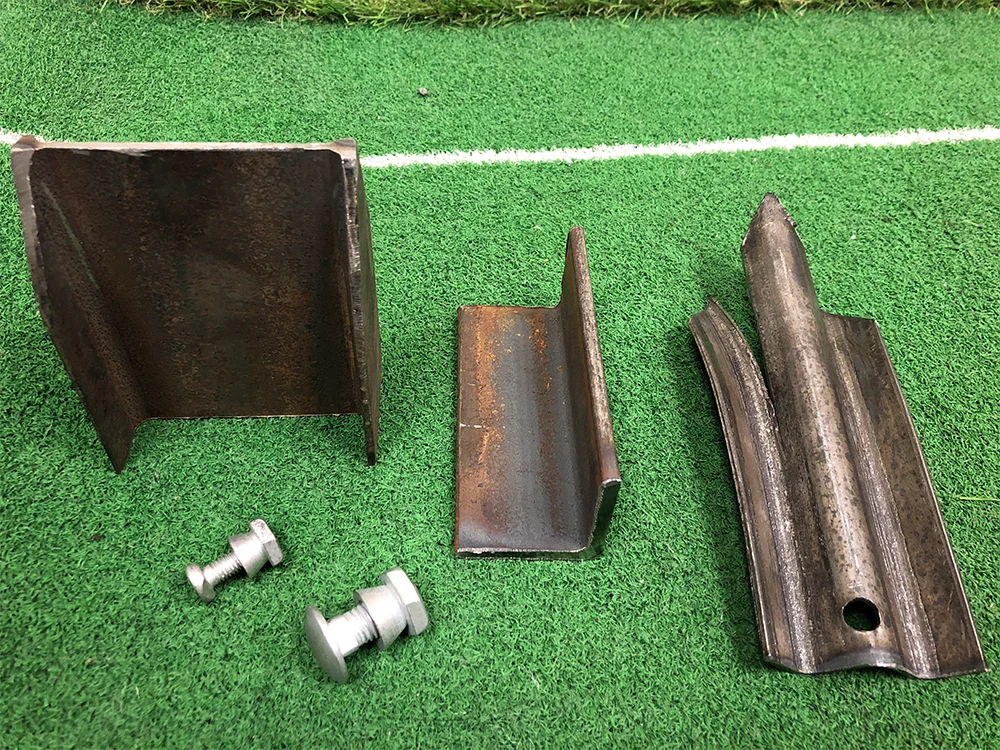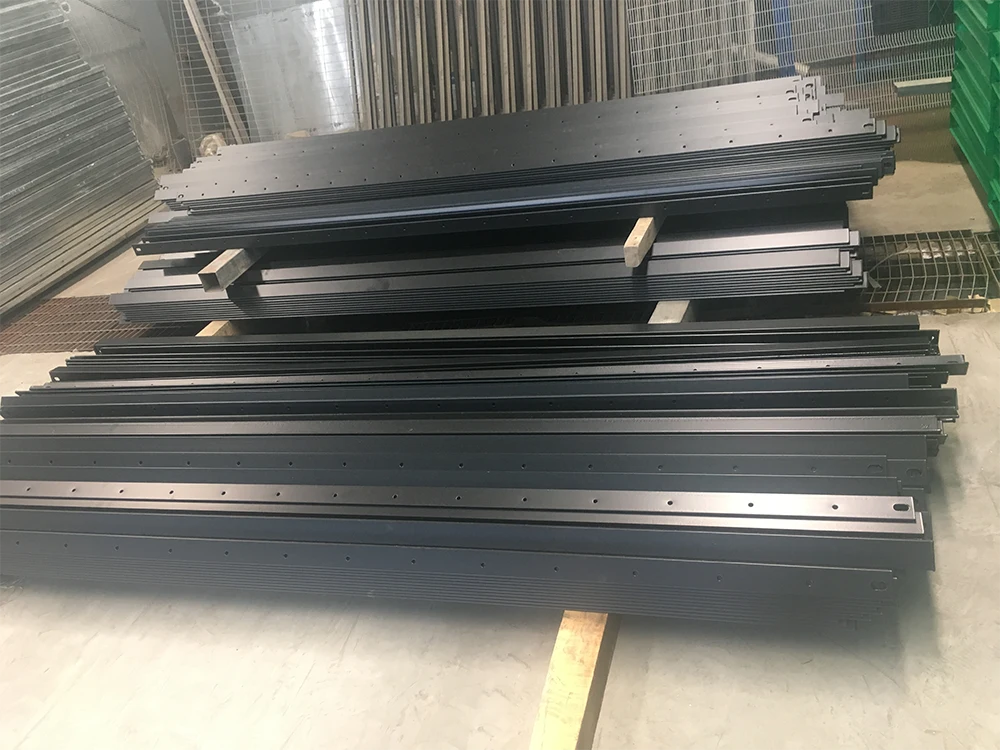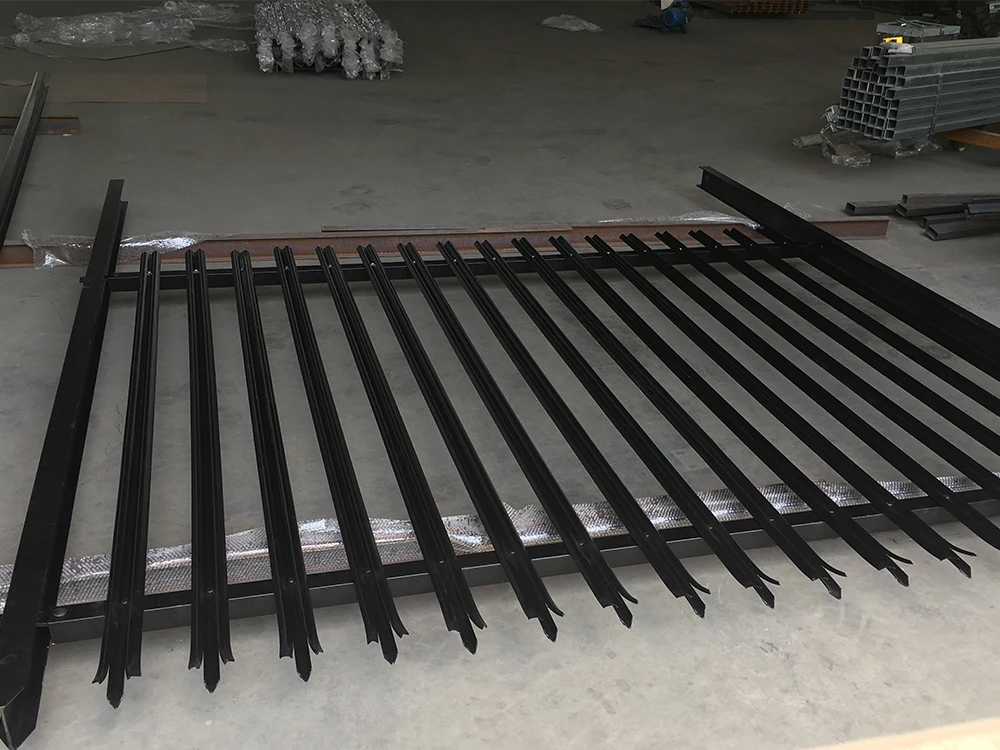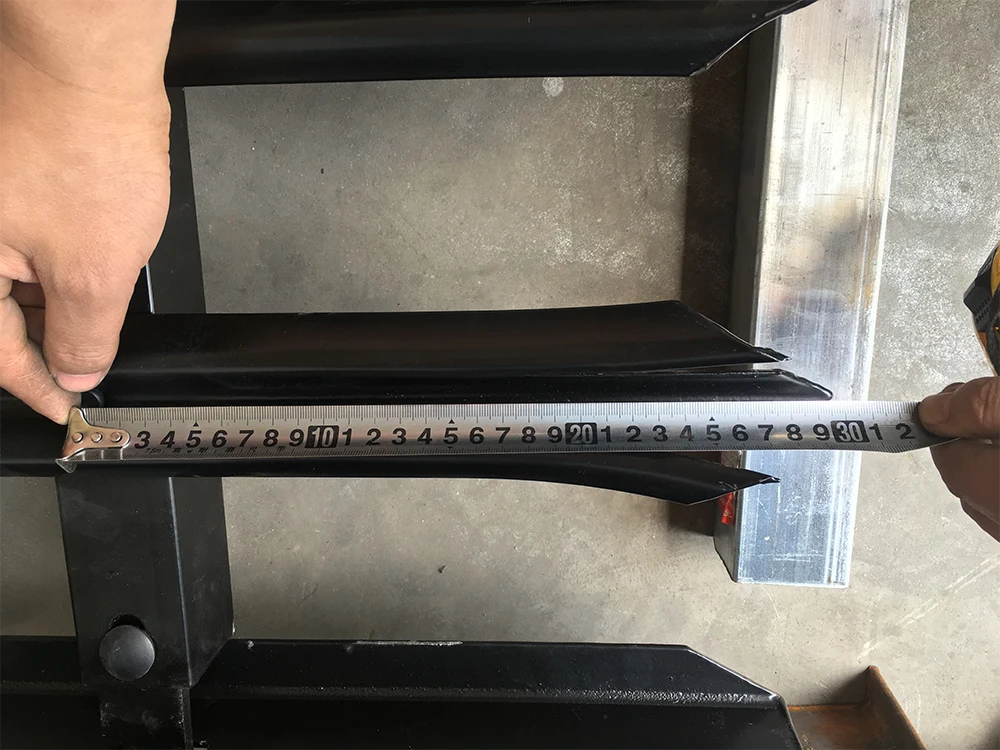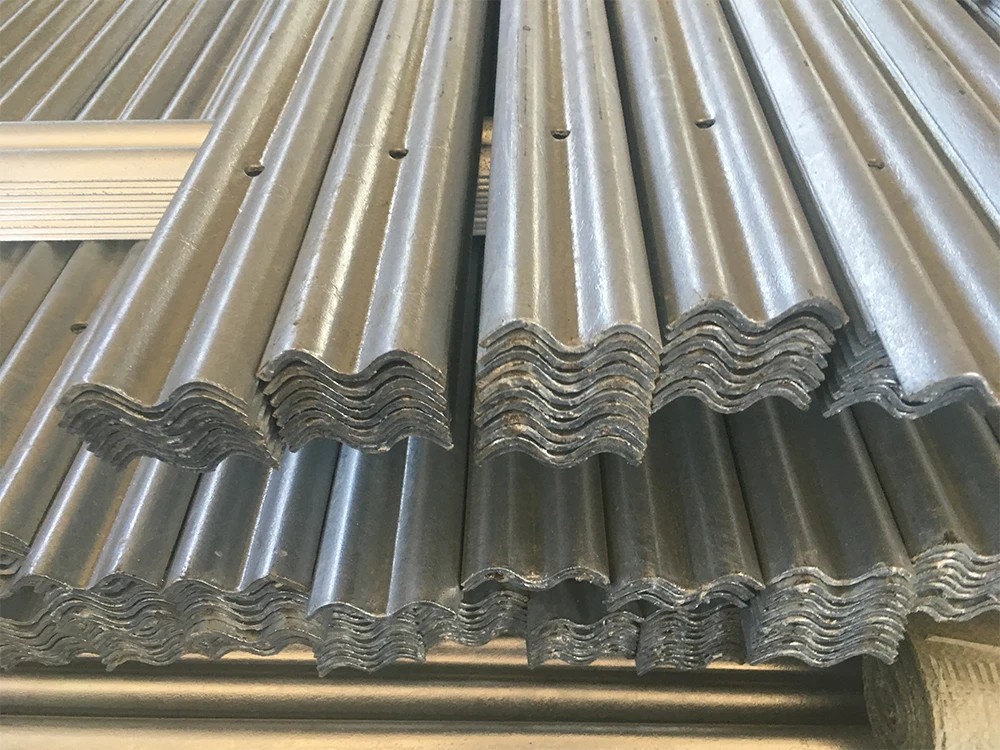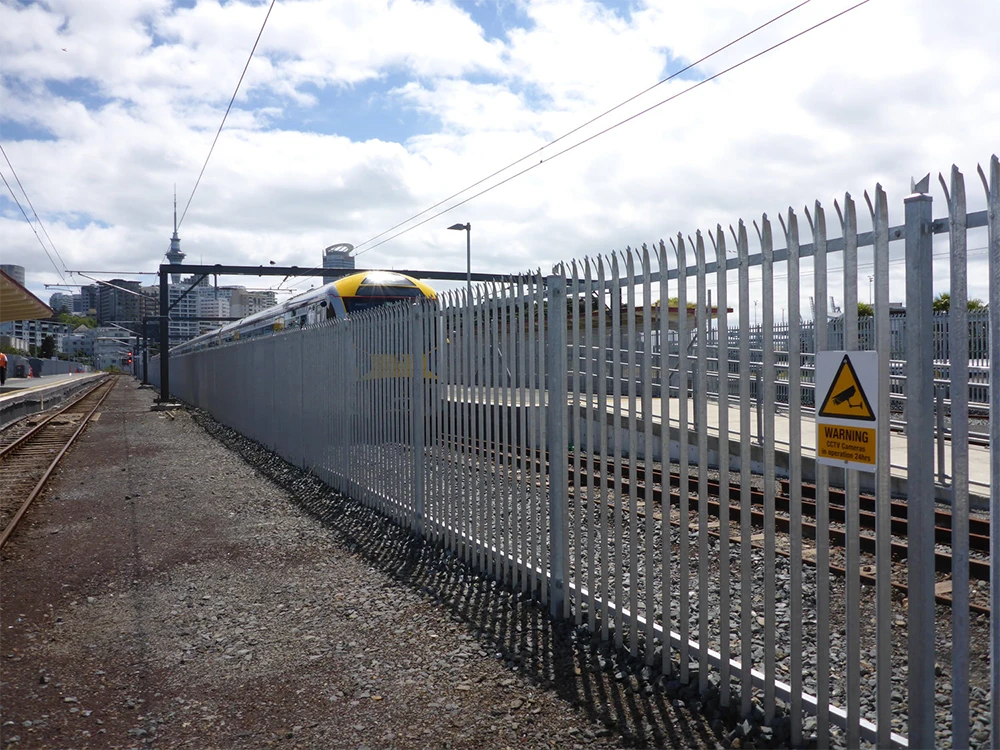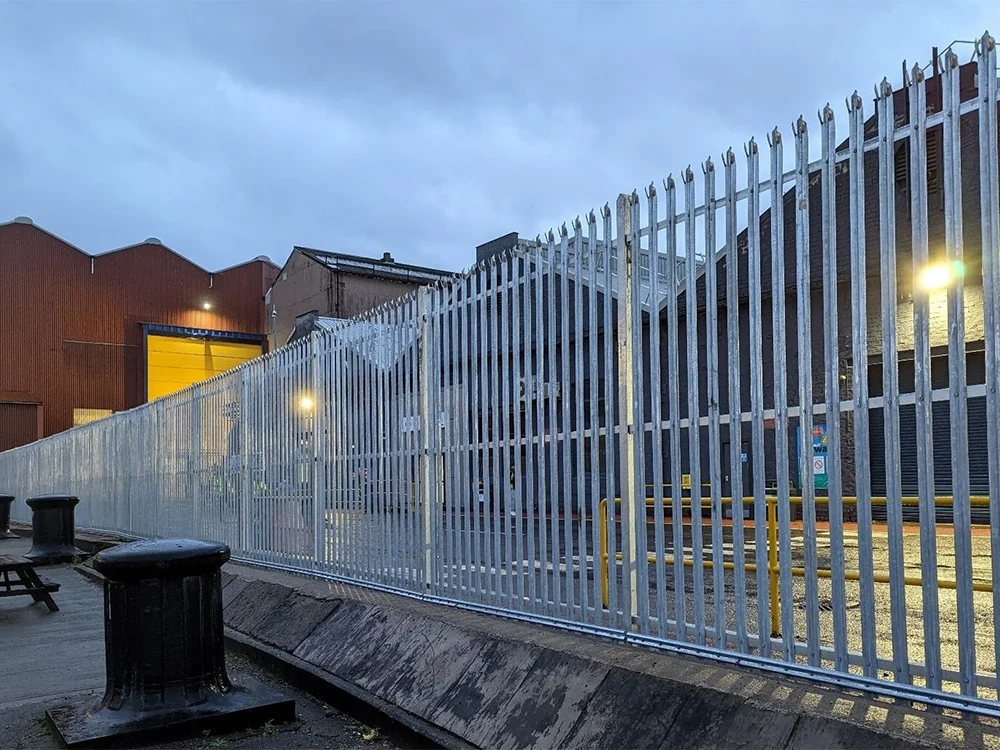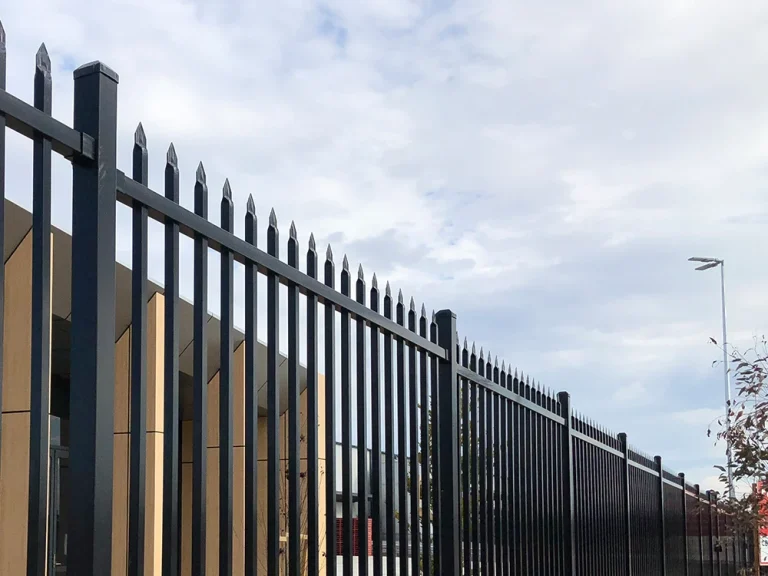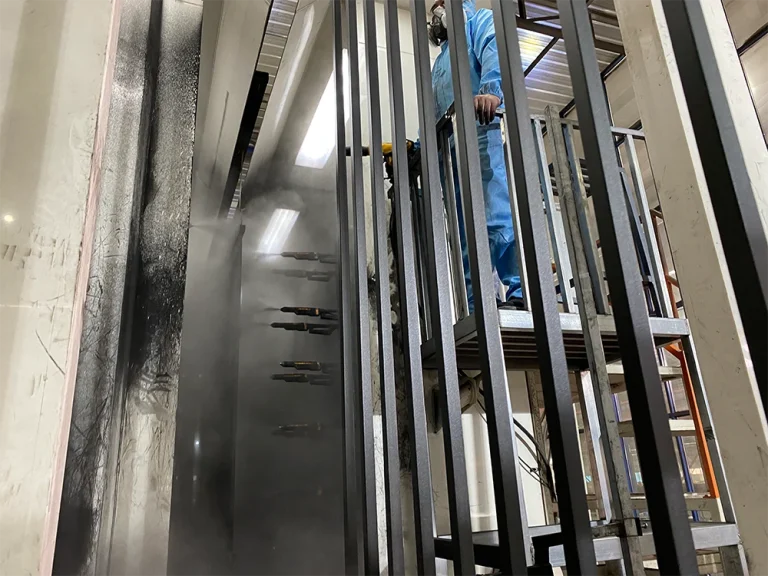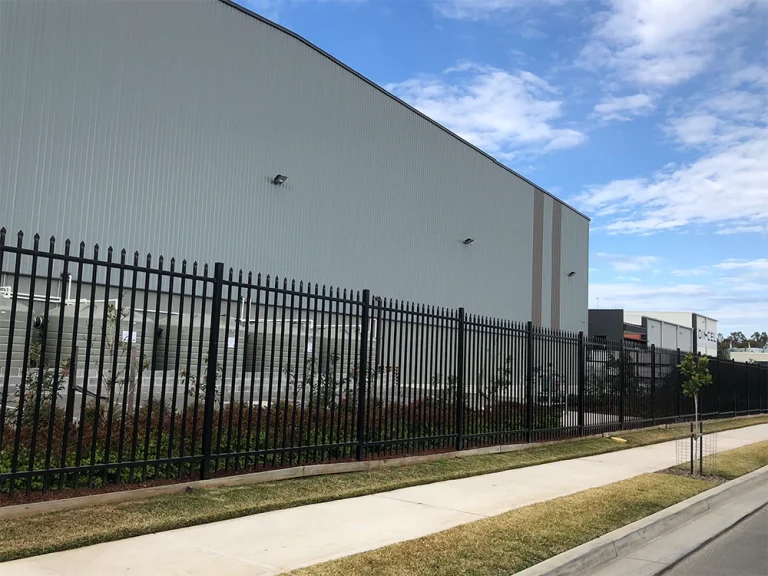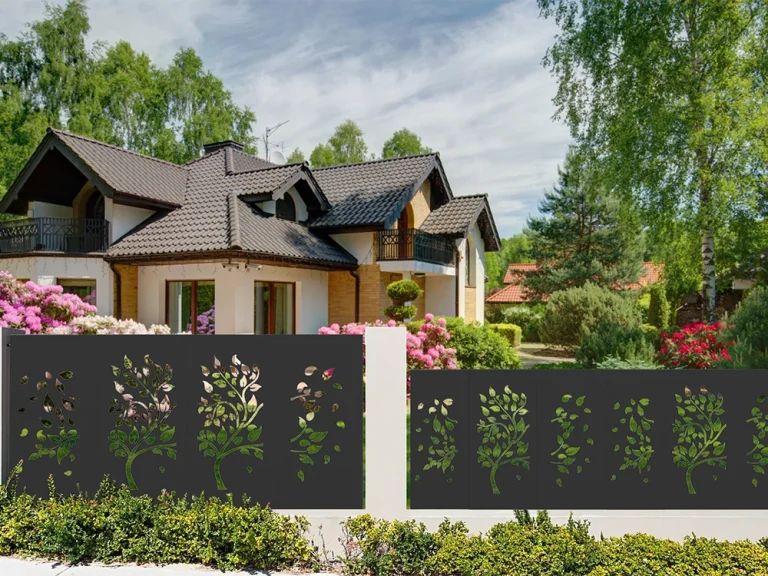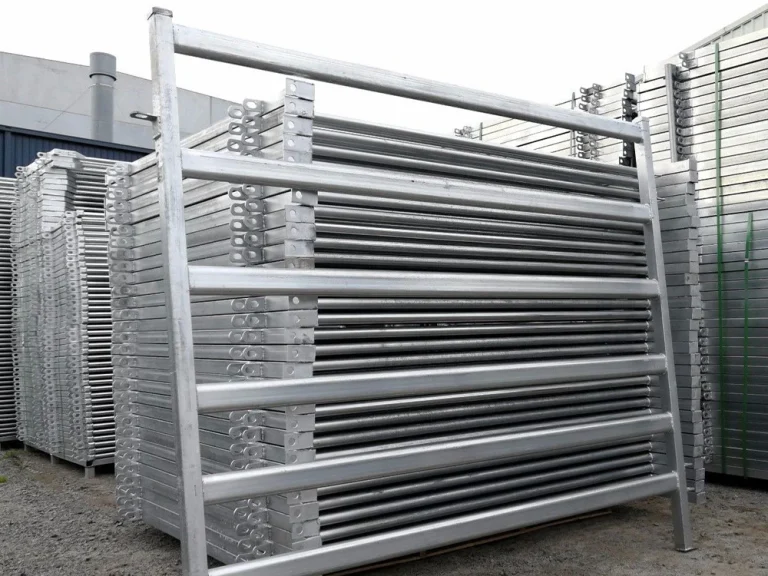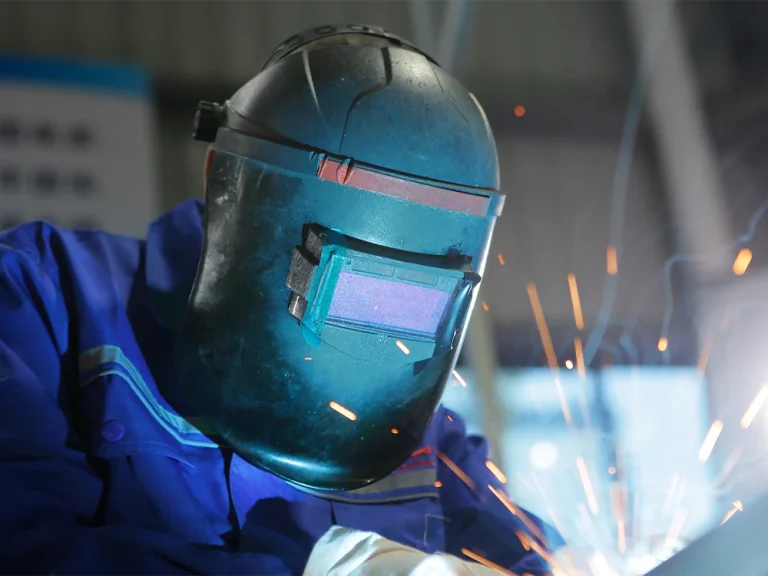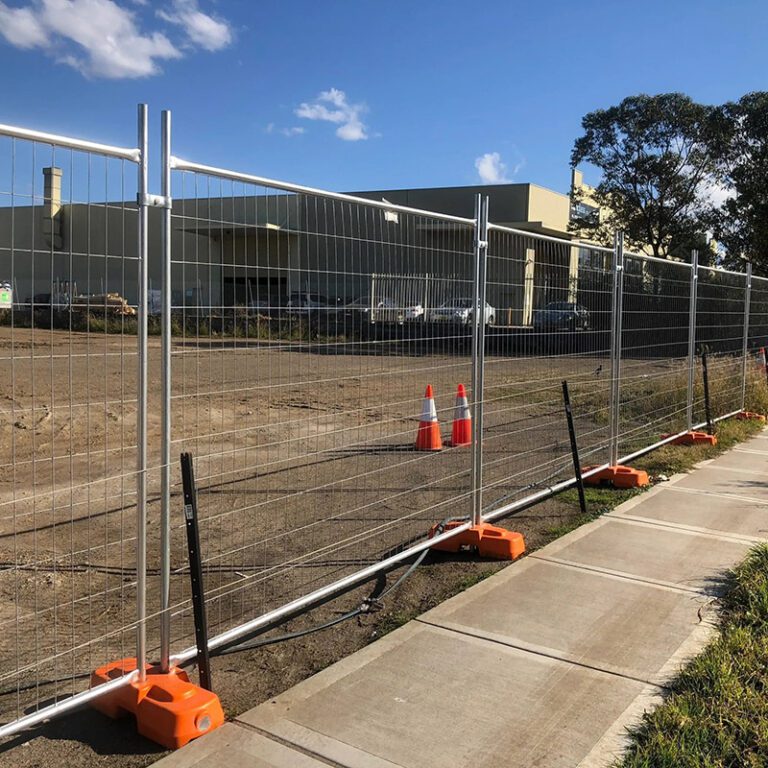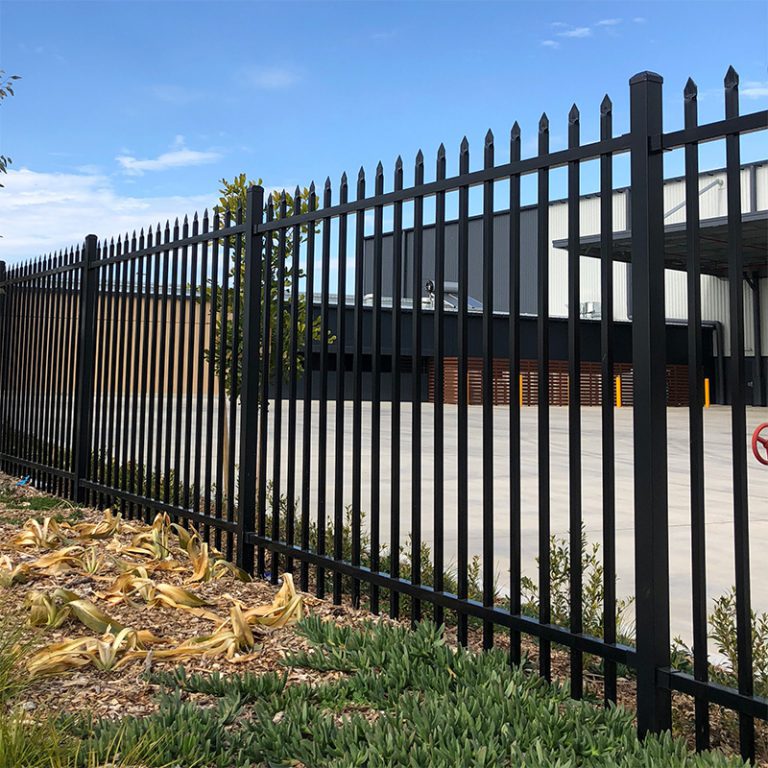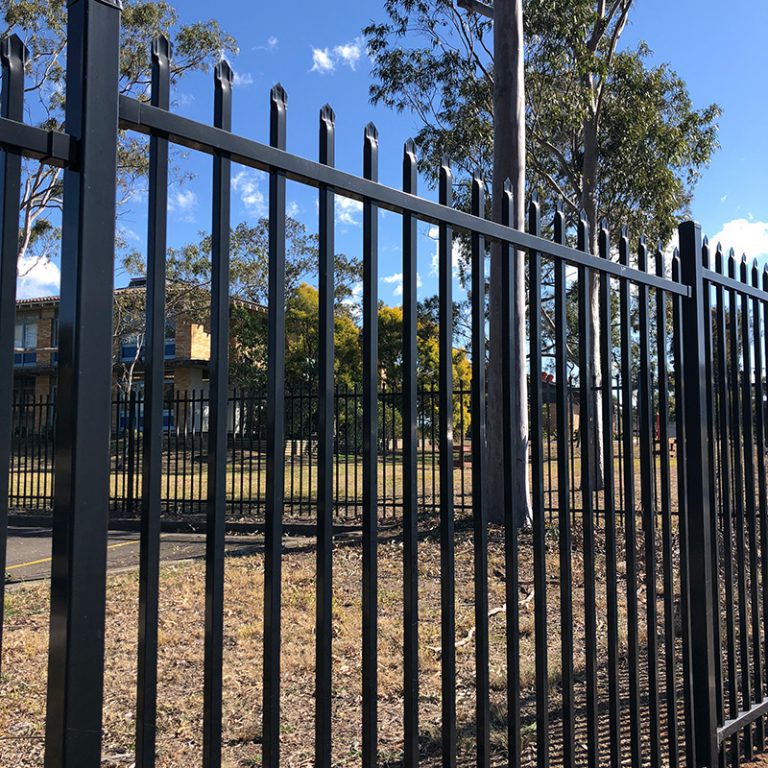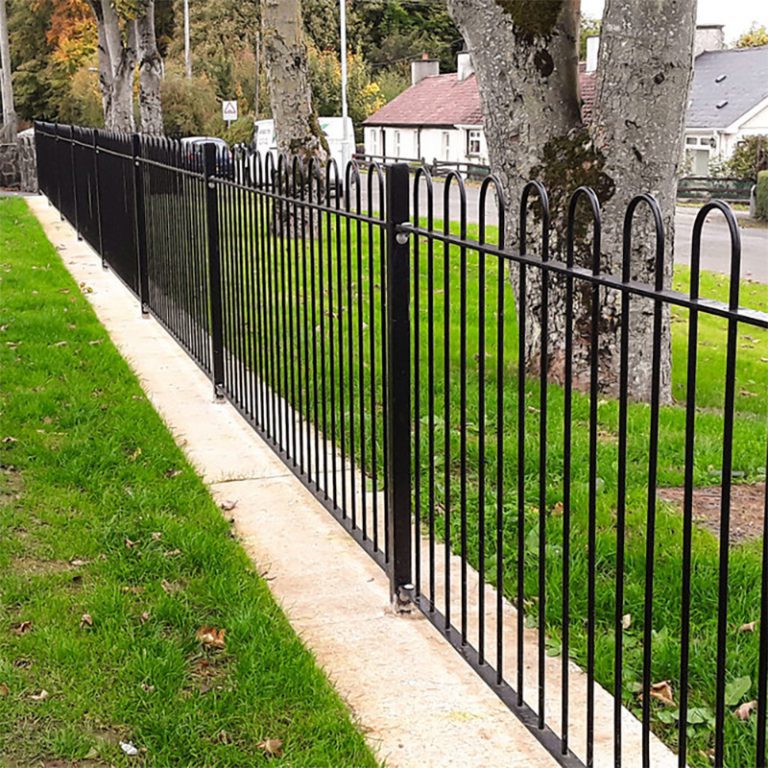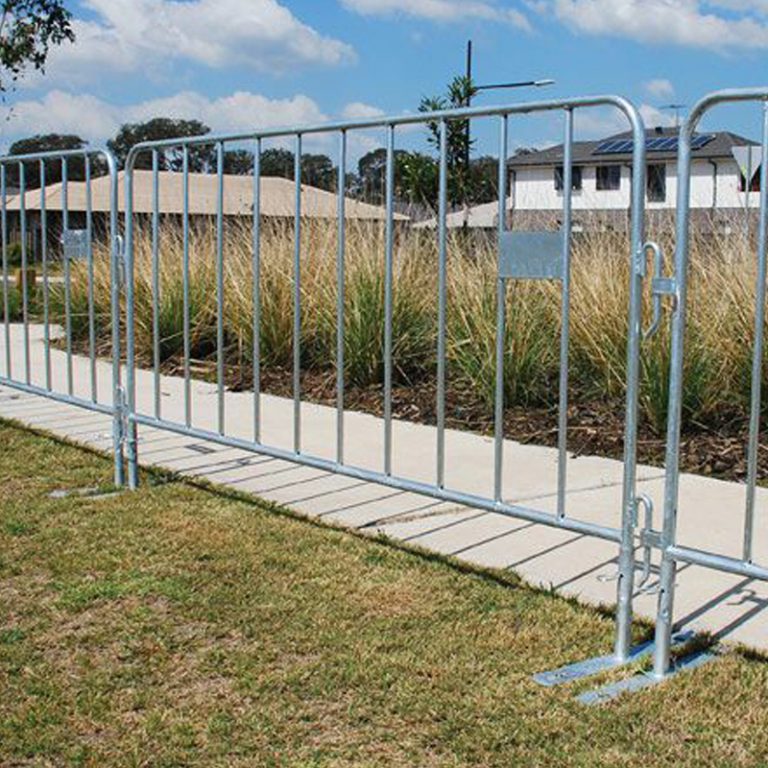Installing a palisade fence is one of the most effective ways to enhance the security of your property. Known for its robust structure and imposing design, a steel palisade fence serves as a formidable barrier against unauthorized access. Whether you are looking to protect an industrial site, commercial property, or even a high-security residential area, the correct installation of a palisade fence is crucial. This comprehensive guide will walk you through the steps needed to install a palisade fence, highlighting the importance of proper installation, the tools and preparations required, and additional considerations to ensure that your security fence provides maximum protection and longevity.
What is a Palisade Fence?
A palisade fence is a type of security fence known for its robust and imposing structure, designed primarily to protect property from unauthorized access. Made from durable steel, these fences consist of vertical posts with pointed tops, commonly referred to as “pales.” The primary advantage of a palisade fence lies in its ability to deter intruders due to its intimidating appearance and the difficulty of scaling it. As a professional fence manufacturer, we offer high-quality steel palisade fences that are ideal for securing industrial sites, commercial properties, and even residential areas requiring enhanced security.
Preparations for Installing a Palisade Fence
Before embarking on the installation of a palisade fence, it is essential to ensure that you have adequately prepared. Proper preparation will streamline the installation process and ensure a durable and effective security fence.
A. Gathering Tools and Materials
To install a palisade fence, you will need specific tools and materials. Below is a list of essential items:
– Steel pales and posts:
Ensure that the pales are of high quality and have been treated to resist corrosion.
– Fence brackets:
These will secure the pales of the posts.
– Bolts, nuts, and washers:
Necessary for assembling the fence components.
– Concrete mix:
For securing the fence posts into the ground.
– Spade or post-hole digger:
For digging holes where the posts will be anchored.
– Spirit level:
To ensure the posts are vertically aligned.
– Measuring tape:
To accurately measure distances between posts.
– Wrench or socket set:
For tightening bolts and nuts.
– Protective gear:
Gloves, safety glasses, and steel-toed boots to ensure safety during installation.
B. Preparing the Site
Once you have gathered all the necessary tools and materials, the next step is site preparation. This involves:
– Surveying the Area:
Mark out the boundary where the fence will be installed. This ensures that the fence is erected on the correct line and helps avoid legal disputes with neighboring properties.
– Clearing the Ground:
Remove any obstacles such as rocks, debris, or vegetation that might impede the installation process.
– Checking for Underground Utilities:
Before digging, it’s critical to check for underground utilities like water, gas, or electrical lines. Hitting these could be dangerous and costly.
C. Assembling a Team
Depending on the size of the area you want to fence, you may need additional personnel. While small projects might be manageable by one or two people, larger installations often require a team. Consider the following:
– Skill Level:
Ensure that your team members have experience in fence installation or at least a basic understanding of construction tasks.
– Division of Labor:
Assign specific tasks to each team member to increase efficiency. For example, one person could dig holes while another prepares the concrete mix.
Step-by-Step Guide to Installing a Palisade Fence
A. Marking and Digging Post Holes
Start by marking the exact positions where the fence posts will be installed. Using the measuring tape, ensure that the distance between each post is uniform, typically around 2.75 meters. Next, use the spade or post-hole digger to create holes at the marked spots. The depth of each hole should be approximately one-third of the post’s length to provide adequate stability.
B. Setting the Posts
Once the holes are ready, insert the steel posts into each one. Before pouring the concrete mix, use the spirit level to check that the posts are perfectly vertical. Pour the concrete mix into the hole, ensuring it surrounds the post evenly. Allow the concrete to set, which may take 24 to 48 hours depending on the weather conditions.
C. Attaching the Pales
After the posts are securely set, it’s time to attach the pales. Begin by fixing the bottom brackets to the posts, followed by the top brackets. Position the pales between these brackets and secure them using bolts, nuts, and washers. Ensure each pale is aligned correctly and tighten the bolts using the wrench or socket set.
d. Final Checks
After all the pales have been installed, conduct a thorough inspection of the fence. Ensure all components are securely fastened and that the fence is level and straight. Check for any gaps or misalignments that could compromise security.
Additional Considerations
A: Maintenance of Your Palisade Fence
To ensure the longevity of your install steel palisade fence, regular maintenance is crucial. This includes:
Inspecting for Rust:
Even though the pales are treated to resist corrosion, regular inspections will help detect early signs of rust.
Tightening Loose Bolts:
Over time, bolts may loosen due to environmental factors. Periodic tightening will maintain the fence’s integrity.
Repainting:
To maintain aesthetic appeal and additional protection against the elements, consider repainting the fence every few years.
B: Enhancing Security Features
For areas requiring extra security, additional features can be incorporated into your palisade fence:
Anti-climb Spikes:
These can be installed on top of the pales to further deter intruders.
Security Cameras:
Integrating surveillance cameras with your fence enhances monitoring capabilities.
Alarm Systems:
Attaching sensors to the fence that trigger alarms upon tampering adds another layer of security.
The Importance of Correctly Installing a Palisade Fence
A. Ensuring Maximum Security
The primary function of a palisade fence is to provide security. Proper installation is crucial to achieving this goal. A poorly installed fence can lead to vulnerabilities, such as gaps between pales or weak post anchoring, which intruders can exploit. By ensuring that the fence is correctly installed, you maximize its effectiveness as a security fence. This involves making sure the posts are deeply set in concrete, the pales are securely attached, and the fence is level and straight. An installation done by professionals, like those offered by a professional fence manufacturer, guarantees that these standards are met, providing you with peace of mind that your property is well protected.
B. Enhancing Durability and Longevity
A correctly install steel palisade fence is not only more secure but also more durable. Improper installation can lead to issues such as leaning posts, loose pales, or even the collapse of sections of the fence over time. By following the correct installation procedures, including the use of high-quality materials and ensuring proper alignment, you can significantly extend the lifespan of your fence. This not only saves you money on repairs and replacements but also ensures that your security fence continues to serve its purpose for many years.
Our Palisade Fence Advantages
As a professional fence manufacturer, we take pride in offering top-quality steel palisade fences that provide unparalleled security and durability. Here are the key advantages of choosing our products:
1. Superior Materials:
Our palisade fences are made from high-grade steel, treated to resist corrosion, and withstand harsh environmental conditions. This ensures a long-lasting and maintenance-free fence.
2. Customizable Options:
We offer a range of designs and finishes, allowing you to choose a palisade fence that not only meets your security needs but also complements the aesthetic of your property.
3. Expert Installation Support:
Our team of professionals provides expert guidance throughout the installation process, thus ensuring that your fence is installed correctly and efficiently, meeting all local regulations and standards.
4. Enhanced Security Features:
We offer additional security enhancements, such as anti-climb spikes and integrated alarm systems, to provide an extra layer of protection.
5. Sustainability Commitment:
Our fences are manufactured with sustainability in mind, using recyclable materials and environmentally friendly production methods.
Conclusion
A well-install palisade fence is a critical investment in the security of your property. By following the steps outlined in this guide, you can ensure that your fence is not only secure but also durable and compliant with local regulations. The expertise and quality provided by our team as a professional fence manufacturer ensures that your steel palisade fence will serve its purpose effectively for many years to come. Whether you are securing a commercial, industrial, or residential property, trust us to deliver the best solutions for your security needs.
